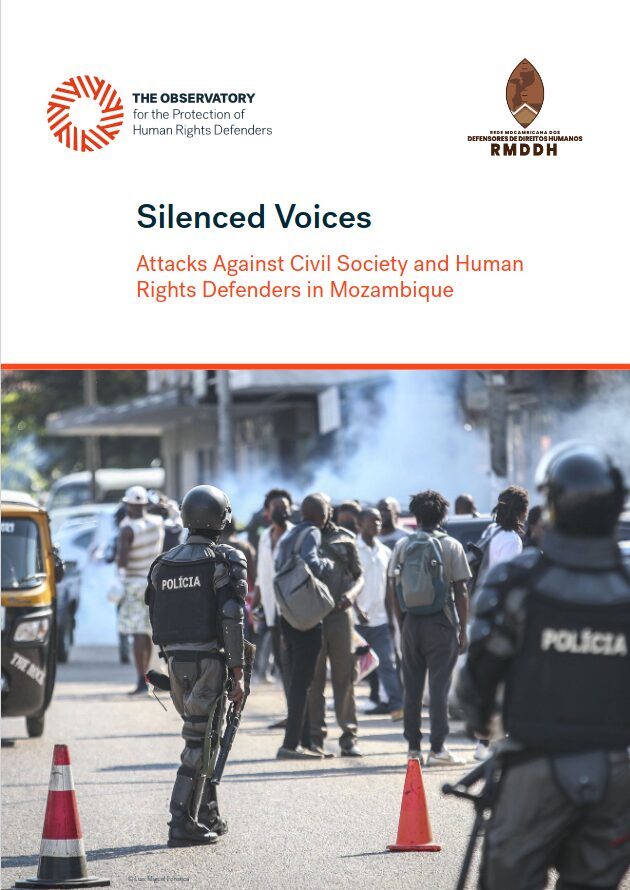 Paris-Geneva-Maputo, September 29, 2023 – Renowned human rights defender Dr. Anastácio Matavel was brutally murdered in Xai-Xai, Gaza Province, on October 7, 2019, one week before the general elections, which he was due to observe. This tragic event, among many other attacks and threats against, and repression of human rights defenders in the country, is considered to be a direct attack on civil society in its pursuit of legitimate election monitoring activities.Four years later, with the municipal elections to be held on October 11, 2023, and the general elections to be held in 2024 fast approaching, the situation of human rights defenders remains critical, as impunity of perpetrators of human rights violations remains high, and as space for civil society continues shrinking. These are some of the findings of a field mission conducted by the Observatory for the Protection of Human Rights Defenders at the end of May 2023 in Maputo, Mozambique, which are made public today in the note “Silenced voices. Attacks Against Civil Society and Human Rights Defenders in Mozambique”.“The operating environment for human rights defenders in Mozambique is highly challenging. They constantly face defamation, threats, physical attacks, and even killings. Impunity for cases of crimes committed against human rights defenders, is sadly common practice. Land and environmental rights defenders, in particular, pay a heavy price in their fight against the extractive industry, such as in the Cabo Delgado Province“, said Alice Mogwe, President of FIDH and Director of DITSHWANELO – the Botswana Centre for Human Rights.
Paris-Geneva-Maputo, September 29, 2023 – Renowned human rights defender Dr. Anastácio Matavel was brutally murdered in Xai-Xai, Gaza Province, on October 7, 2019, one week before the general elections, which he was due to observe. This tragic event, among many other attacks and threats against, and repression of human rights defenders in the country, is considered to be a direct attack on civil society in its pursuit of legitimate election monitoring activities.Four years later, with the municipal elections to be held on October 11, 2023, and the general elections to be held in 2024 fast approaching, the situation of human rights defenders remains critical, as impunity of perpetrators of human rights violations remains high, and as space for civil society continues shrinking. These are some of the findings of a field mission conducted by the Observatory for the Protection of Human Rights Defenders at the end of May 2023 in Maputo, Mozambique, which are made public today in the note “Silenced voices. Attacks Against Civil Society and Human Rights Defenders in Mozambique”.“The operating environment for human rights defenders in Mozambique is highly challenging. They constantly face defamation, threats, physical attacks, and even killings. Impunity for cases of crimes committed against human rights defenders, is sadly common practice. Land and environmental rights defenders, in particular, pay a heavy price in their fight against the extractive industry, such as in the Cabo Delgado Province“, said Alice Mogwe, President of FIDH and Director of DITSHWANELO – the Botswana Centre for Human Rights.The report highlights, among other trends of repression, the threat to freedom of association constituted by the currently discussed Draft Bill on the Creation, Organisation and Operation of Non-Profit Organisations, the de facto discrimination against LGBTQIA+ organisations, which have been persistently denied legal register for decades, or the violent repression of peaceful demonstrations, as was the case for the marches in honour of rapper Azagaia last March.
“I do hope that in the coming days and months, ahead of Mozambique 2024 general elections, we will see positive steps be taken towards human rights defenders such as concrete measures to prevent attacks and harassment against them; the promotion of positive narratives around the key role they play in society; and the creation of space for dialogue and cooperation between them and the authorities; among others“, added Gerald Staberock, Secretary General of OMCT.
“Our beloved friend Anastácio Matavel paid the ultimate price for recognising that democracy isn’t won by simply sitting in a chair; it requires taking to the streets and fighting for communities to have a voice. It’s for him and others who made such sacrifices that we persist in the struggle today—for the respect of human rights, to honor their memory, and most importantly, to bolster the determination of those who wake up every morning, ready to ensure others can exercise their rights” said Prof. Adriano Nuvunga, Chairman of the RMDDH and Executive Director of the Center for Democracy and Human Rights (CDD), FIDH member organisation in Mozambique.
Read the full note in English and Portuguese on FIDH website, English and Portuguese on OMCT website.


